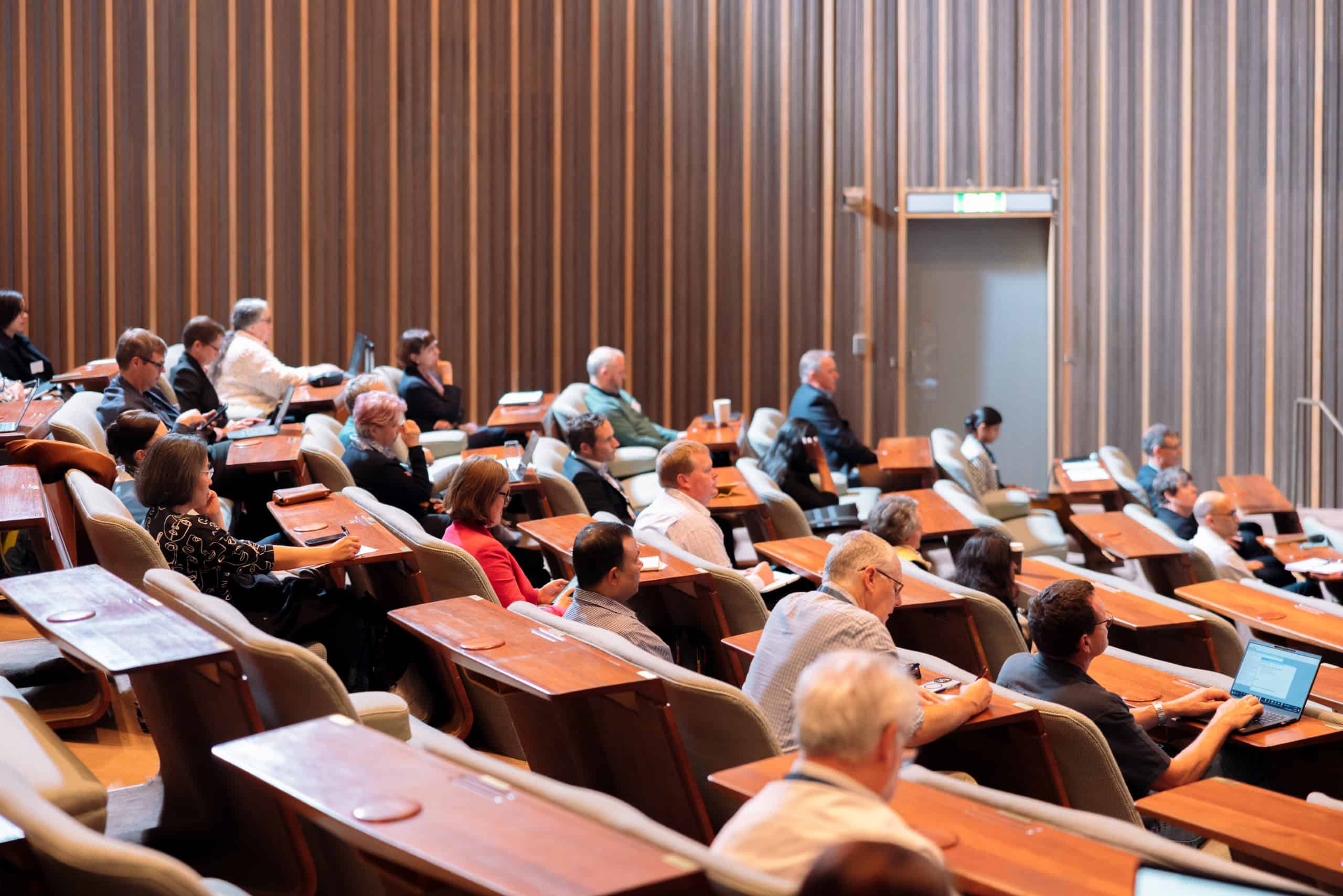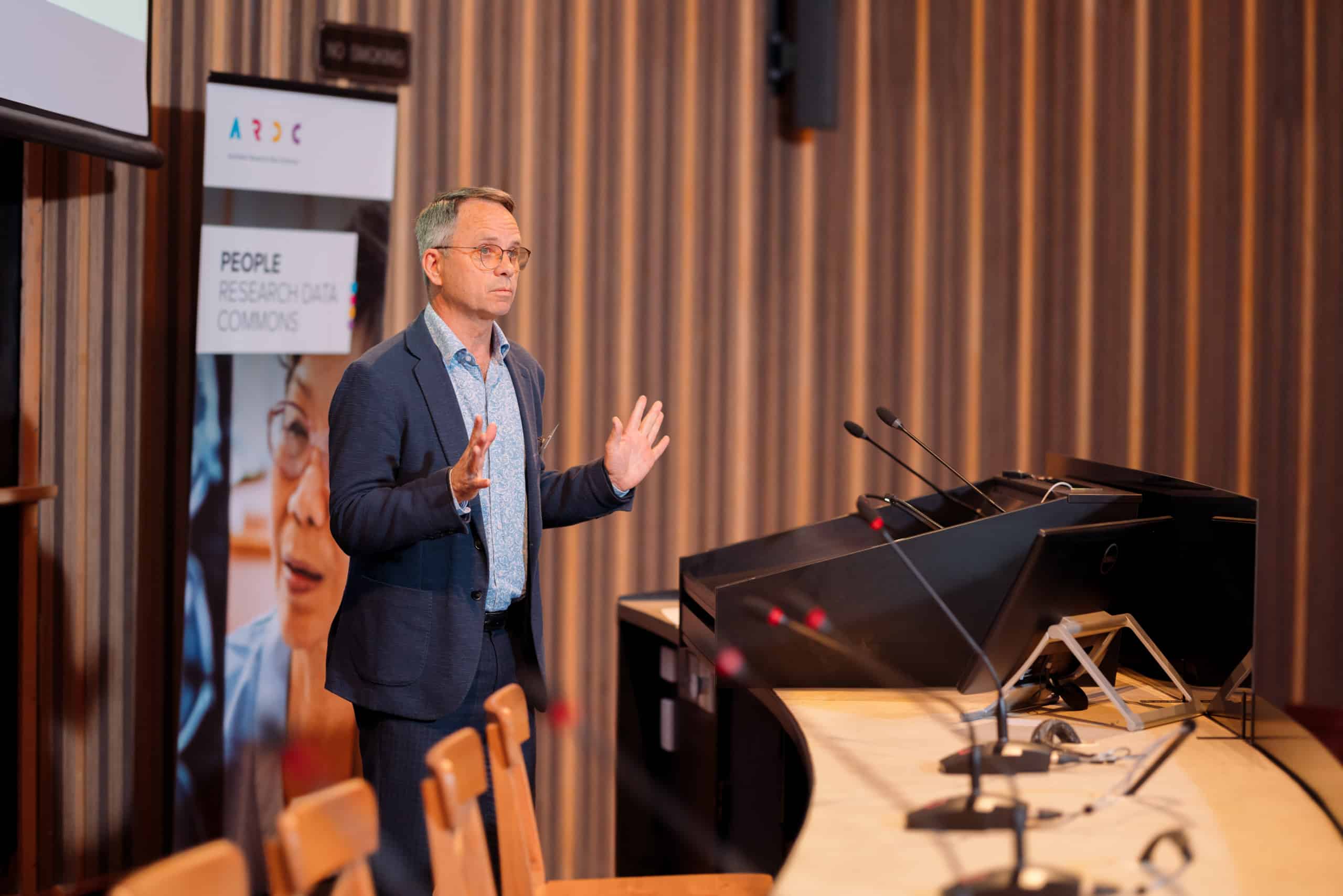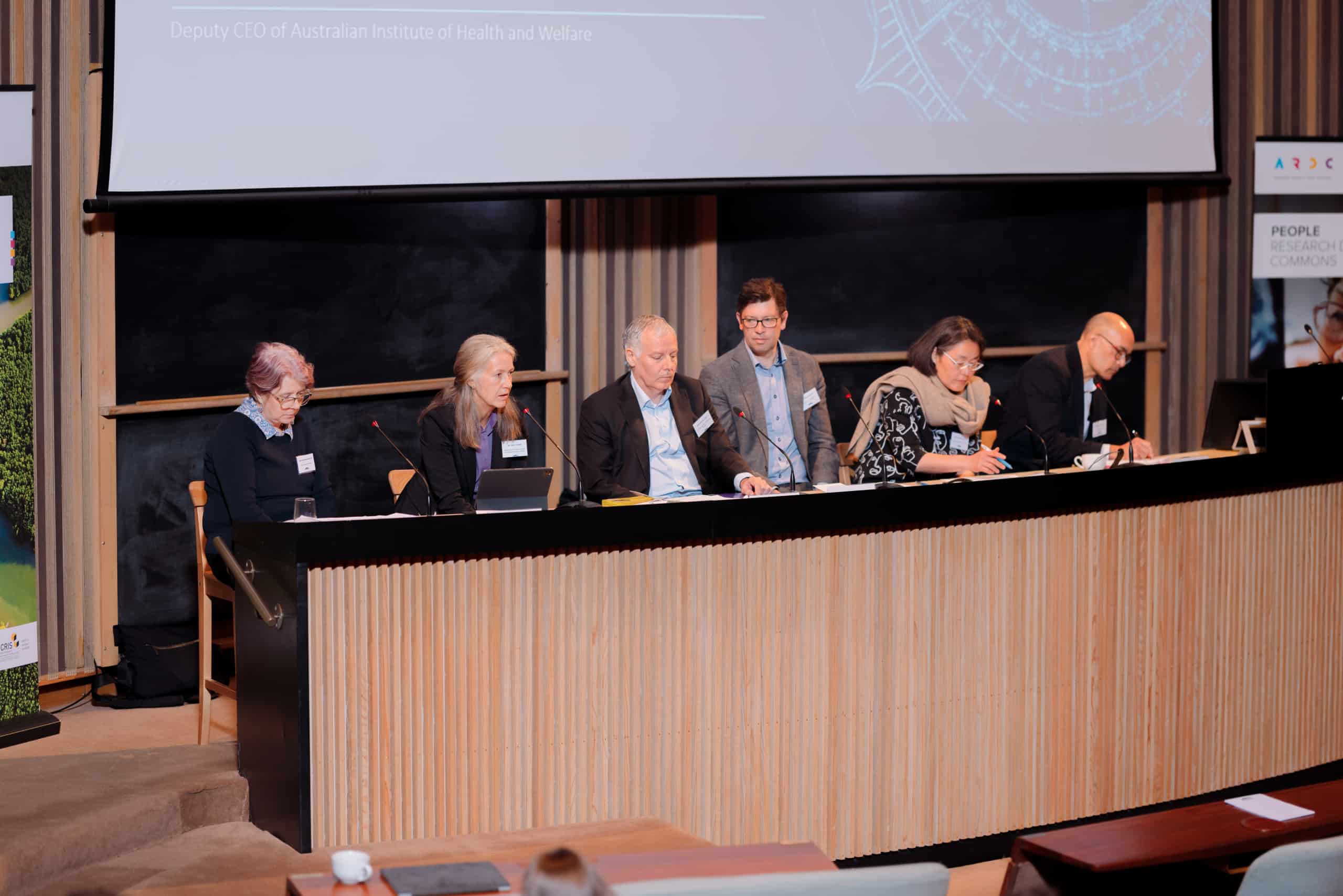
ARCOS Symposium 2024
Go to eventabout ARCOS Symposium 2024
Government and research representatives gathered at a symposium in Canberra to discuss addressing the grand challenges of society through an open flow of data and knowledge between the 2 sectors.
Held on 14 September by the Australian Academy of Science (AAS) and the ARDC, the symposium began with 2 presentations on global and national trends in open science and research-government collaboration for meeting such urgent needs as those captured by the UN’s 17 Sustainable Development Goals (SDGs). The presenters were:
The presentations were followed by a panel discussion on the ins and outs of aligning a digital government and the research sector in Australia for social good. The panellists were:
The symposium was opened by Professor Malcolm Sambridge, the co-vice president and Secretary Physical Sciences of the AAS, and Rosie Hicks, CEO of the ARDC.

Focusing on CODATA, Dr Hodson gave a satellite view in his presentation of global issues and activities around using data to do good. Citing ocean sciences, population health and disaster risk reduction as examples, he began by stressing the cross-domain nature of the biggest problems we are facing and their solutions.
“The major pressing global scientific and human issues of the 21st century can only be adequately addressed through research or science that works across disciplines to understand complex systems and that uses interdisciplinary and, indeed, transdisciplinary approaches or methodologies to turn data into knowledge and then into action.”
He noted, however, that science is falling short in this respect. He went on to highlight some of the proposed actions, including bringing about a mode of science where stakeholders and end-users like funders, politicians and communities are directly involved in framing the research question. There are already proposals to do this, Dr Hodson said, through a network of regional sustainability hubs and centres of mission science supported by global knowledge sharing platforms in line with the FAIR and CARE principles.
Another action is to implement open science as recommended by UNESCO. Two streams of work are underway, namely encouraging and coordinating data infrastructures for interoperability and formulating a data policy for open science in times of crisis. But while science should be as open as possible, Dr Hodson said, the data should be as protected as necessary. One project is to enable granular access to safe parts of otherwise sensitive data, and guidelines complementing the CARE principles are being considered.
Against these challenges and opportunities, Dr Hodson introduced the CODATA and Research Data Alliance-led WorldFAIR Project. In light of 11 disciplinary and cross-disciplinary case studies, the project works to:
Calling for more case studies, Dr Hodson said, “FAIR is a project, but we see it as the start of a wider initiative and the invitation is to collaborate on that.”

In the second presentation, Dr Burton turned to the Australian context and traced the history of 3 strands of policy for socially beneficial research:
In the panel discussion, government and research representatives focused on how the 2 sectors have worked and can work together for social good.
As researchers, A/Prof Sugiura and Prof Western noted the importance of government data on such work in academia as health workforce planning and longitudinal household study. Conversely, Dr Coram and Mr James, providing a government perspective, spoke of the value of technology and scientific input in transparent and accountable decision making in environmental and public health policy. It is not easy, however, to align government and academia.

“Researchers … don’t traditionally have access to the policy landscape and how policies are made. There’s a rhythm to different sectors,” said A/Prof Sugiura, who has worked in both government and academia. Dr Coram made a similar observation, noting the tension between political imperatives and good scientific process, which takes time.
Another problem, as A/Prof Sugiura and Prof Barbour pointed out, lies in research publishing. As the COVID-19 pandemic revealed, traditional journals are not fast and integrated with data enough for researchers to optimise the social benefit of their work. Indeed, the very system where researchers have to focus on traditional journal metrics is not conducive to thinking about social impact.
In the meantime, government faces its own obstacles when it comes to providing data for research as Prof Western and Dr Gould suggested. Progress has been made with the public sector’s mindset towards data shifting from retention to sharing. There are also efforts like Environment Information Australia, which will improve access to quality environmental data, and the AIHW’s work to provide linked, usable data securely. However, agencies still struggle with issues like a lack of data science capability and not having enough resources for data custodianship.
The panel and the audience proposed a number of ways out:
You can watch the symposium in full here:
The ARDC is leading a project to evaluate researcher access to public sector data. Learn more about the project and the associated Policy Program.
The ARDC is funded through the National Collaborative Research Infrastructure Strategy (NCRIS) to support national digital research infrastructure for Australian researchers.